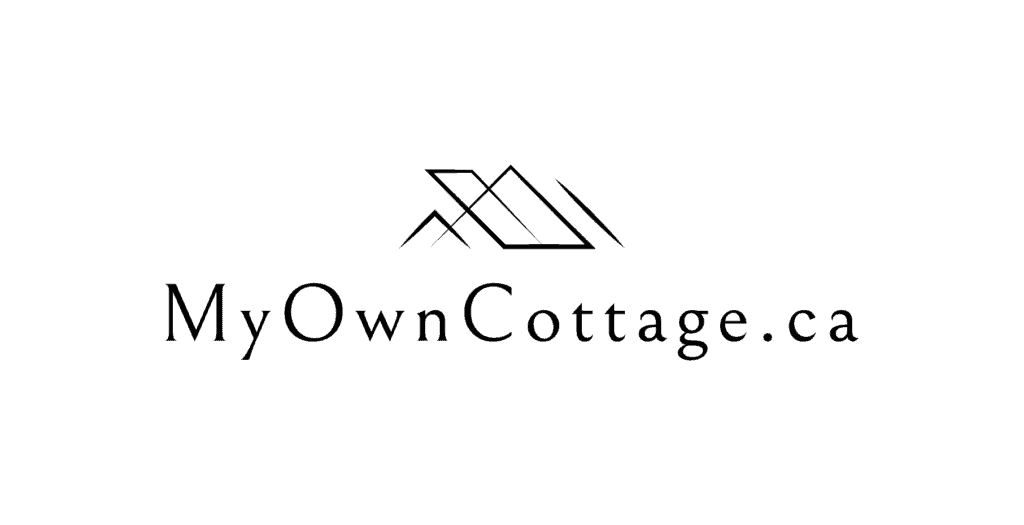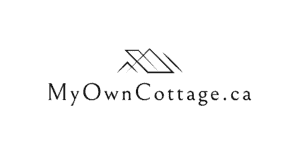Zoning Regulations for Prefab Homes in Nova Scotia
✨ Learn about key zoning regulations for prefab homes in Nova Scotia.
From municipal bylaws to lot requirements, find what you need to know.
Use our designs to build legally, smoothly, and with confidence! ✅
Home » Zoning Regulations for Prefab Homes in Nova Scotia
🏡 Prefab Home Zoning Rules in Nova Scotia
As Nova Scotia embraces modern housing solutions, prefab homes are gaining popularity for their energy efficiency, customization, and affordability.
However, before you can move into your new prefab or mini home, it’s essential to focus on some much-needed due diligence.
Firstly, be sure to understand the zoning regulations and building codes that govern where and how you can build.
Whether you’re planning a custom home on the South Shore, a modular cottage in Cape Breton, or a modern design in New Glasgow.
Navigating local rules is your crucial first step toward building prefab homes in Nova Scotia.
🧭 Building Codes and Zoning for Prefab Homes Nova Scotia
At My Own Cottage, we simplify this process.
Backed by years of experience building prefab homes across Atlantic Canada, our family business is here to help you turn your vision into a reality.
Naturally, we do so with transparent prices and without unexpected surprises.
Below, let’s explore some of the key zoning considerations you need to be aware of when building your prefab home in Nova Scotia!
📜 Key Zoning Considerations
1. Building Permits
In Nova Scotia, a building permit is required for constructing new homes, including prefab and modular homes.
This permit ensures that the construction meets the standards set by the National Building Code and local regulations.
For instance, the Municipality of the District of Chester requires permits for new houses, relocations of modular homes, and structures requiring power connection.
2. Land Use Bylaws
Each municipality has specific land use bylaws that dictate where and how prefab homes can be placed.
These bylaws cover aspects like lot size, setbacks, and the number of dwellings per lot.
For example, in Planning Districts 8 and 9, any second dwelling on a lot must comply with all applicable provisions.
Moreover, a plot plan certified by a Nova Scotia Land Surveyor is required before a Development Permit is issued.
3. Setback Requirements
Setbacks refer to the minimum distance a building must be from property lines, roads, or other structures.
These requirements vary by municipality and are essential for ensuring safety and privacy.
For instance, Halifax County Municipality’s By-law 29 specifies that a mobile home must be at least fifteen (15) feet from any park street.
It must also be twenty (20) feet from any public street or highway.
4. Accessory Buildings
If you plan to add structures like garages or sheds to your prefab home, be aware that accessory buildings over 215 square feet typically require a building permit.
The Municipality of the District of Chester mandates permits for single-storey garages or accessory buildings more than 215 square feet.
5. Environmental Considerations
Some areas may have environmental regulations that impact where and how you can build.
It’s essential to consult with local authorities to ensure compliance with any environmental assessments or restrictions.
🛠️ Key Steps to Ensure Compliance
Consult Local Authorities: Reach out to your municipal planning department to understand specific zoning regulations in your area.
Hire Professionals: Engage architects or planners familiar with Nova Scotia’s building codes to assist with your project.
Obtain Necessary Permits: Secure all required building and development permits before commencing construction.
Stay Informed: Regularly check for updates to zoning bylaws and building codes to ensure ongoing compliance.
Plan Your Prefab Home with Confidence ✅
At My Own Cottage, we specialize in guiding homeowners through the complexities of building prefab homes in Nova Scotia.
Our team is well-versed in local zoning regulations and can help streamline the process for you.
🧑💼 Request a Free Consultation
📲 Call Us Directly: (705) 345-9337
✅ Ontario-Built | Energy-Efficient | Fully Customizable | Quick Delivery
Understanding the Building Codes and Regulations
When it comes to prefab construction, Nova Scotia’s Building Code plays a foundational role.
Prefab homes must meet the same safety, structural, and environmental standards as traditional homes.
The good news?
Since prefab units are built in a controlled environment, they often exceed local requirements in areas like insulation, durability, and carbon footprint reduction.
Key Regulations for Prefab Homes in Nova Scotia
Whether you’re looking at customizable homes, modular units, or mobile homes, your prefab home will need to conform to regulations related to:
Minimum SQ. FT of living area
Interior design layout (e.g., walk-in pantry, kitchen, or living room space)
Exterior walls and weatherproofing
Approved building materials
Working with a builder like My Own Cottage ensures these elements are already integrated into your home plans.
All so that your construction site meets all provincial expectations from day one.
Zoning Restrictions for Prefab Homes in Nova Scotia
Zoning regulations determine what type of structure you can build on your property, and where.
Across Nova Scotia, zoning laws vary depending on your municipality.
Essentially, this means that what’s allowed in Pictou County may differ from rules in Cape Breton, Prince Edward Island, or Lunenburg.
Key considerations include:
Land use designation (residential, rural, mixed-use)
Setbacks from property lines
Lot coverage and building height
Permitted accessory buildings (like ADUs or garages)
Cost-Effective Options or Second Homes
If you’re planning a mini home or mobile home, you’ll want to verify whether they’re permitted under your zone’s specific definitions.
For example, many rural and coastal regions are more open to alternative housing types.
This is especially true for cost-effective options or second homes.
Regulations and the Design of Your Dream Home
Zoning restrictions can also influence the design of your dream home.
Some areas mandate specific styles to preserve heritage character, while others have flexible options for contemporary design or cape cod-style structures.
At My Own Cottage, we review your floor plans and property details to ensure you’re building within your local zoning bylaws.
In fact, we’re removing a major hurdle before you even break ground.
Obtaining Permits and Approvals
Before your new home can be delivered, you’ll need to obtain proper building permits.
This includes submitting site plans, securing development approvals, and possibly undergoing inspections during the build process.
Some of the most common required documents include:
Property survey
Site plan with setbacks, orientation, and utilities
Floor plan with interior design specs
Structural engineering documentation (usually provided by prefab builders)
Prefab Home Delivery and Temporary Road Use Permits
Some municipalities may also require environmental assessments, especially for lots near water or on sloped terrain.
Moreover, if your home is being delivered via home delivery, your builder may need to file for temporary road use permits.
Our Project Management Team and Nova Scotia's Permits
To make this easier, My Own Cottage works closely with local officials and helps you handle permit applications.
Our project management team has deep familiarity with Nova Scotia’s permitting process, so you can avoid delays and get to construction faster.
Working with Contractors and Local Officials
For a Successful Prefab Home Project
Once your permits are in place, collaboration becomes key.
A successful prefab build in Nova Scotia requires seamless coordination between your builder, local contractors, and municipal inspectors.
From foundation installation to finishing touches, each stage of the project must align with local code and zoning rules.
Reputable Names in North America’s Prefab Space
We recommend working with experienced tradespeople who understand prefab builds.
This is especially important when it comes to setting the foundation, connecting utilities, and completing final interior design work.
If you’re sourcing locally, consider reputable names in North America’s prefab space.
Top of Page Customer Service and Effective Options
Our team at My Own Cottage ensures smooth communication between all parties.
We also conduct routine site checks and manage scheduling so nothing slips through the cracks.
It’s part of our commitment to top of page customer service and effective options that meet your unique needs.
Common Challenges and Solutions
When Building a Prefab Home in Nova Scotia
Even with the best plans, prefab home projects can face a few bumps in the road.
Here are some common issues—and how we help solve them:
1. Zoning Confusion
Municipal bylaws can be difficult to interpret, especially when they reference older definitions of modular or mobile homes.
We help you clarify which housing types are allowed and ensure your plans are fully compliant.
2. Permit Delays
Permit timelines can vary between counties, especially during the busy spring and summer seasons.
Our project management team prepares all documentation in advance and submits promptly to avoid seasonal bottlenecks.
3. Customization Constraints
Want to add a walk-in pantry, large living room, or custom floor plans?
Some zoning areas may restrict home size or configuration.
We offer innovative design alternatives that maximize space without breaching code.
4. Transportation Limitations
If you’re building in remote areas like Cape Breton or South Shore, road access may impact the delivery of your home.
Our delivery team assesses all logistics upfront and works with local authorities for approvals.
With My Own Cottage, you get more than a prefab home.
With us, you get a cost-effective, durable home built with care, expertise, and full transparency at every step.
Building Your Perfect Home in Nova Scotia Today
At My Own Cottage, we make it easy to build a custom prefab home that complies with all zoning regulations in Nova Scotia.
From the first free consultation to the final finishing touches, we’re with you every step of the way.
Let’s Bring Your Dream Home to Life
✅ Book your free consultation
✅ Explore floor plans customized to your personal style
✅ Get help with permits, zoning, and approvals
✅ Partner with a builder who treats your home like it’s our own
Let’s bring your dream home to life—crafted with high quality materials, designed for your unique lifestyle, and approved to build in your community.

